Welcome...
👋 This will be our last newsletter of 2023. Thank you so much for your support this year. Look for our return in early January!
Onward...
AI is the hottest topic for just about everyone who works in tech. As we covered in a previous newsletter, France has staked its claim to leadership in this domain via a mix of public and private initiatives.
Providing the perfect capstone to The Year Of AI is Mistral AI, the Paris-based startup that is using open-source models to develop its technology. As had long been rumored, the company officially confirmed that it had raised €385 million ($415 million) in a Series A round (whaaat?). The tech utopians at Andreessen Horowitz led the round which also included money from previous investor Lightspeed Ventures. The company is now reportedly valued at a cool $2 billion which is pas mal du tout for a company that has no commercial product.
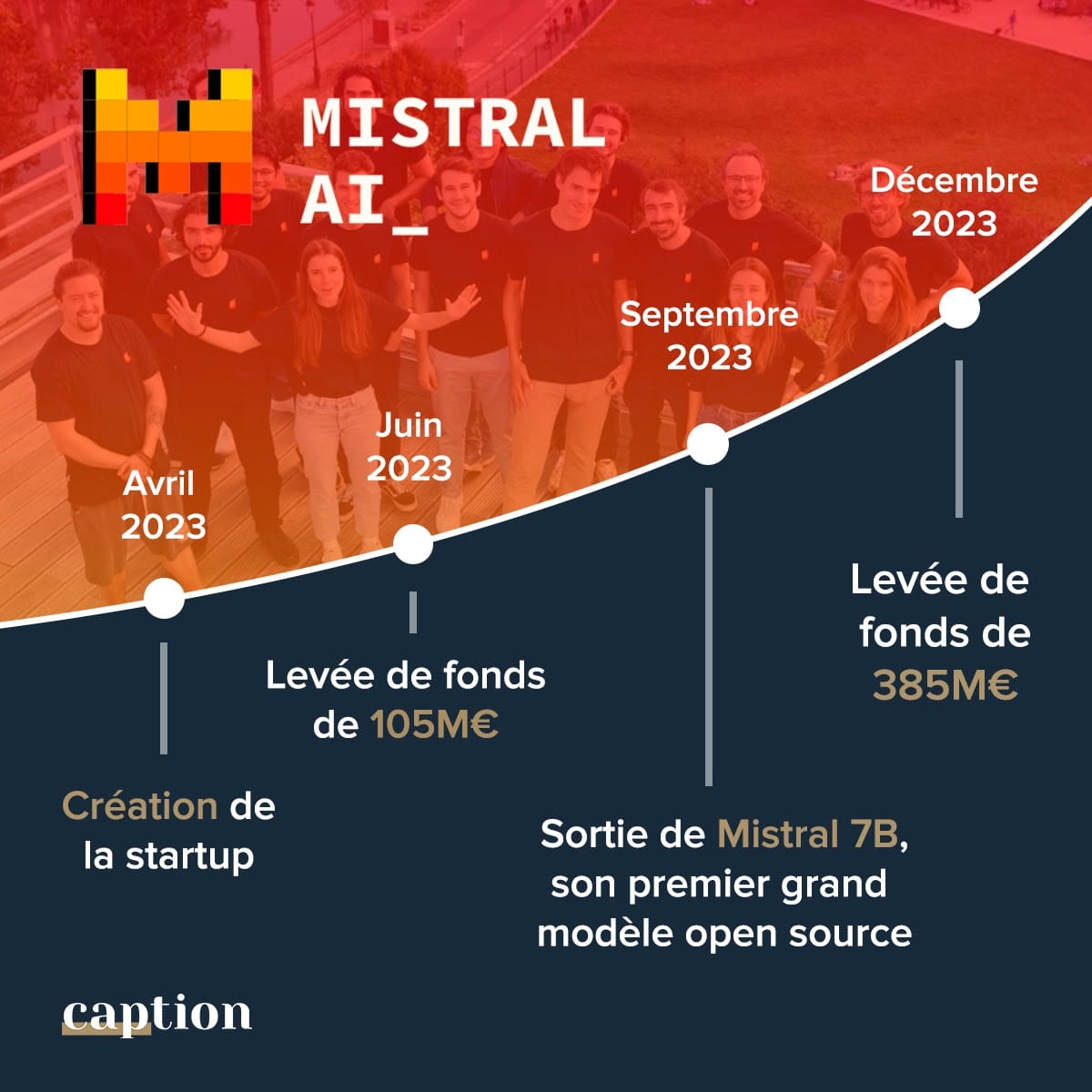
The company faces intense competition in the form of US-based juggernaut Open AI (which is not open-source) and biggies like Google, which announced its Gemini competitor in the GenAI wars. Meanwhile, Mistral AI nonchalantly dropped the latest version of its tech in a tweet.
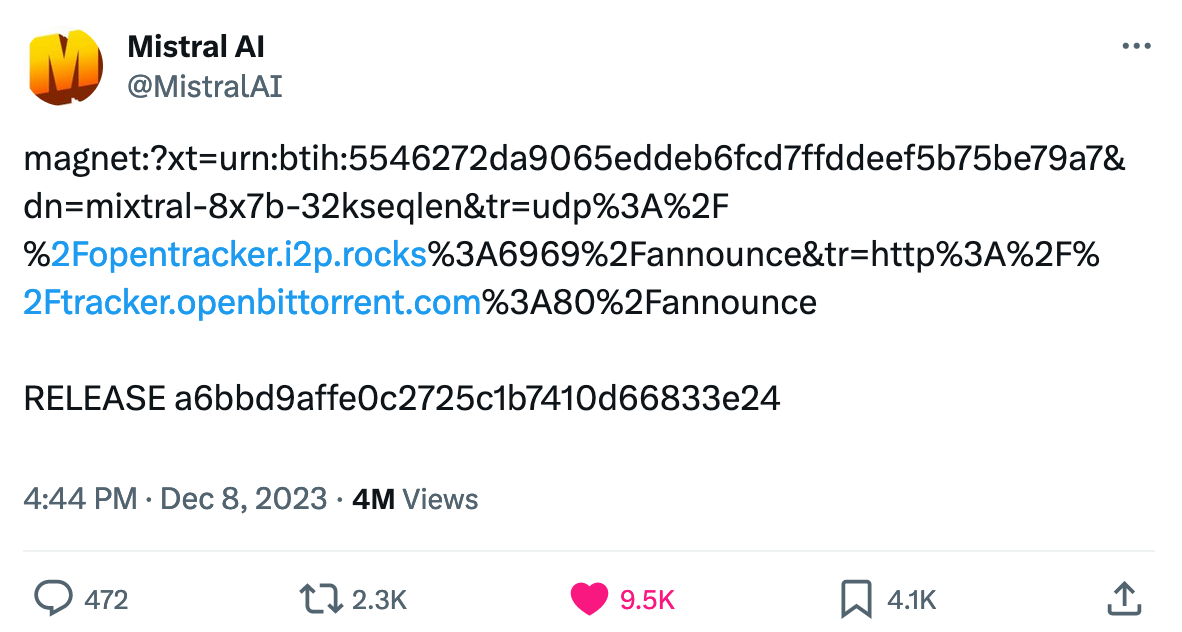
The Mistral news comes amid the ongoing debate about the EU AI Act. This legislation has been in the works for more than 2 years, but bureaucrats have been scrambling to add something about GenAI since it burst into the public consciousness just over a year ago with the introduction of ChatGPT.
On December 9, negotiators agreed on a deal for the legislation that they hailed as a breakthrough. But this being the EU, it is just the next step in a process that could take another two years before it is implemented. One of the central questions is whether to regulate AI based on its potential risk (IE, more regulation for riskier uses like finance and health) or to regulate the development of the language learning models themselves, the building blocks of GenAI, by requiring detailed disclosures on the part of developers.
AI companies have argued that the latter would be onerous and hamper innovation, handing an advantage to Silicon Valley rivals. Indeed, France (along with Germany and Italy) is one of the EU countries arguing for less regulation. At an appearance last week, President Emmanual Macron made it clear he feels the battle over the EU AI Act is far from over, and that he shares concerns that over-regulating this nascent industry will harm France's efforts to compete against the US, UK, and China where companies won't face stringent rules.
"We had a strange week," he said during a visit to Toulouse. "We had both Mistral which raised record financing in the sector, almost 400 million euros. This is truly French genius as we like to see and celebrate it. And we had European regulations which came to consolidate...a French model of regulation but which, in my eyes, I speak to you with complete frankness, means that we are the first place in the world where on so-called foundational AI models, we will regulate much more than the others. So I ask that we evaluate this regulation regularly and if we lose leaders or pioneers because of that, we will have to come back."
One of Mistral AI's investors, General Catalyst, made the argument that open source models are better than heavy regulation because the transparency will allow more people to develop trust in this technology.
"In Mistral, we saw a foundation model company built on the principles of open source, with trust as its North Star," the firm wrote. "...they have been able to develop a vibrant open source community whose collective imagination not only accelerates the rate of adoption and progress of AI but also ensures the robust design of guardrails for the broader ecosystem."
In the newsletter this week, we take a closer look at:
- Deep Dive: Transferring tech from the labs to the fabs has become a pillar of the nation's economic strategy to rebuild its manufacturing base. A visit to Grenoble, the heart of France's Deep Tech economy, reveals how the government's massive programs work.
- Spotlight Interview: Rémi Said, General Partner at Partech, explains why he left a cushy gig at Bain to launch a new Growth Impact fund.
- The Big Deals: Mistral AI (what else?), Braincube, Néolithe, Eligo Bioscience and more!
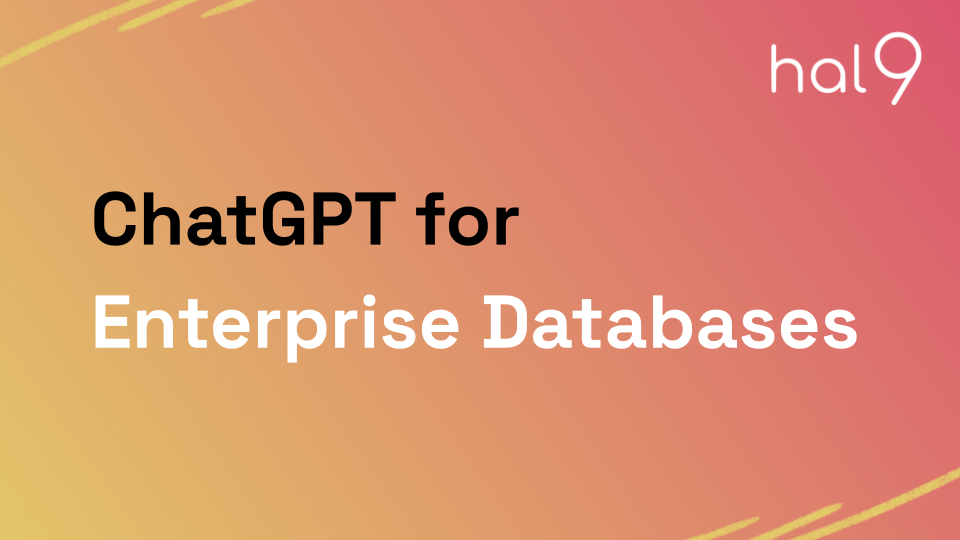
Tech Talk
💸 ⬆️ Funds raising Funds: Paris-based Partech has launched a €300 million growth impact fund dedicated to investing in climate startups, achieving €150 million at first closing (See our Spotlight Interview for more). 💸Partech also closed the first round at €180 million of Partech Venture, a new €360 million fund for mission-critical software, data, and fintech specialists in Europe. 💸 Europe's leading female-founded Growth Equity firm, Revaia has confirmed raising an initial €150 million for its second fund. 💸 And (surely the last one for 2023?) early-stage specialists Singular have successfully closed their second fund at €400 million💰.
💬 ⬆️ Olvid Blows Up: Nothing like a little government regulation to give an app a boost? In this case, the rules were handed down by Prime Minister Élisabeth Borne, who told government employees they could no longer use messaging apps like WhatsApp and Signal as of December 9 because they were not secure. (Naturally, both companies begged to differ). Still, Borne said it was totes fine to use the previously hyper-obscure French messaging app Olvid. That was good news for Olvid founder Thomas Baignères who saw downloads zoom 756% on December 8 before he had finished his morning croissant, according to Sifted. 🙅♀️.
👩👩👦👦 🥊 ↔️ All In The Family: We've covered the legal battles surrounding the influential Paris accelerator-investment network-entrepreneurial education platform known as The Family. Co-founder Oussama Ammar continues to face charges of fraud by the various legal entities representing The Family and its investors in several jurisdictions. But in one venue, the Grand Court of the Cayman Island ruled decisively against Ammar, finding that he misused money from a Family investment fund that was supposed to buy shares in six startups. The court found that Ammar owes €7,367,787.97 to The Family and its investors. However, recovering that money will be a chore as The Family's legal teams continue to pursue actions in the UK and France which might give them leverage to get those funds back. 🧑⚖️
📲 📸 Amo Reloads: As we also noted in the last newsletter, the Zenly crew has gotten the band back together to create a company called amo, which is now breeding social apps like rabbits. The firstborn was social media app ID. Since then, there have been two more: Capture, a new social camera app; and now Location, which co-founder Antoine Martin calls a "mini social map." Which, of course, feels like a call back to Zenly (RIP), the social mapping app that was bought by Snap and then whacked. 🗺📍🤳
🤑 ↔️ European companies will up their investments into GenAI by 115% to $2.8 billion in the next year, according to a new forecast from the Infosys Knowledge Institute, Infosys' research arm, which surveyed 1,000 executives in the UK, France, Germany, Belgium, the Netherlands, Luxembourg, and the Nordic regions. 🤖
🇫🇷 🇩🇪 ↔️ France and Germany are set to spend the most cash on GenAI — with France expected to double spending to nearly $730 million and Germany to about $610m in the next year 💰.
The Deep Dive:
Lessons On Industrial Startups From Grenoble
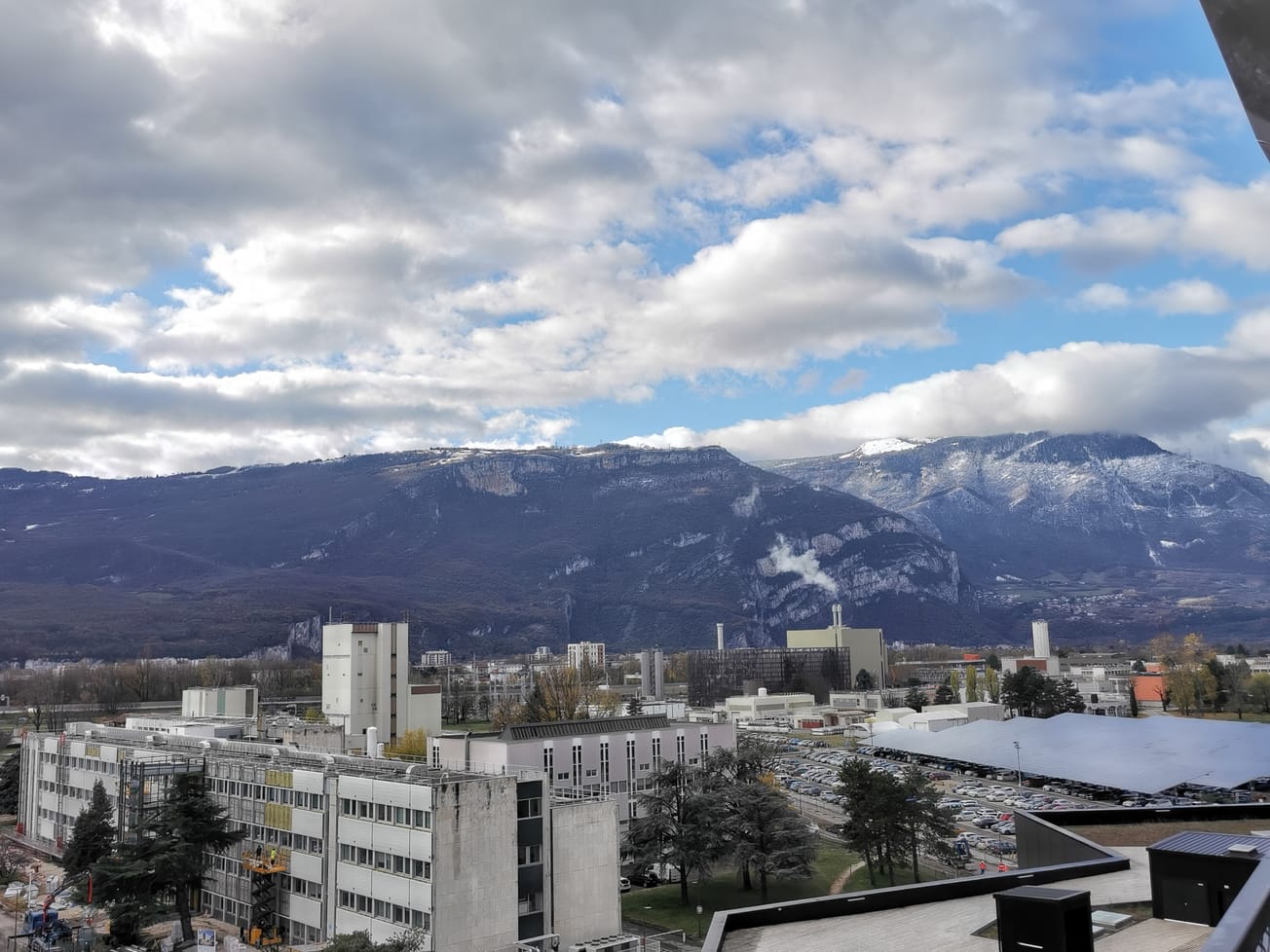
France is pouring billions of euros into programs that take innovations out of the labs and turn them into innovations that spawn new manufacturing. Grenoble, in the foothills of the Alps, is ground zero for these initiatives.
During a two-day tour of the local Deep Tech ecosystem, journalists got a chance to see how government investments through the €54 billion France 2030 and the €100 billion France Relance programs are trying to catalyze the development of innovations that can help rebuild the nation's battered manufacturing economy. The goal is to maximize economic impact through Clean Tech while also increasing sovereignty by making France less reliant on other nations for critical technologies and materials.
Spotlight Interview:
Partech Partner Rémi Said
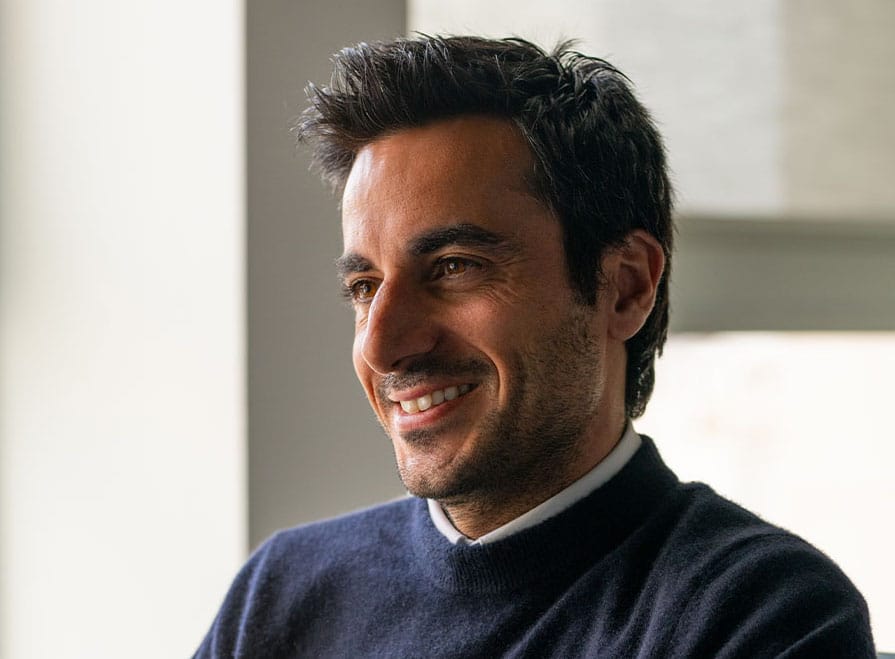
Rémi Said made a bold move in May last year, leaving Bain Capital to spearhead Partech Impact — a pioneering fund dedicated to investing in and scaling impact-driven tech companies at the growth level. He is now Co-Founder and Co-Head of the new fund, and a General Partner at Partech.
With Partech Impact's recent first closing at €150 million and an ambitious goal of reaching €300 million by the end of 2024, we sat down with Said to delve into the details of the new fund.
"If we can tackle 15 of the most pressing challenges that the world is currently facing and build champions capable of solving these issues on a global level within the next 4-6 years, then that will be my ultimate dream come true," Said told us.
The Big Deals
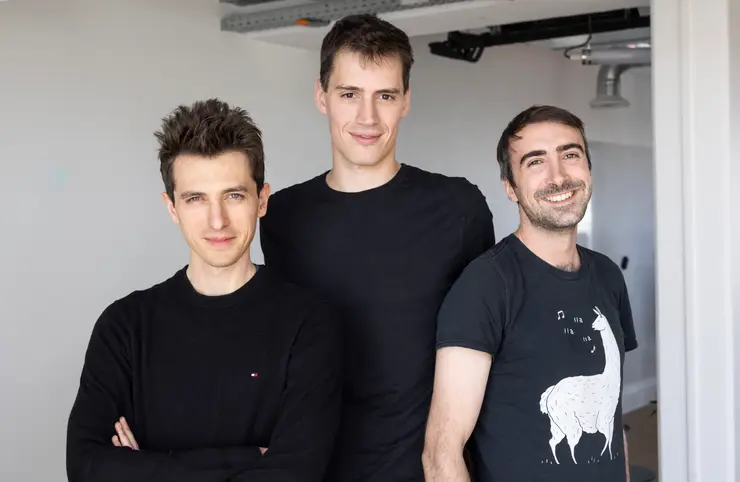

What: Mistral AI, France's big AI hope and latest unicorn, is an open-source developer of pay-as-you-go generative AI solutions (art generation, content creation, chatbots, virtual assistants, language translation, and customer service).
Why: To provide an open approach to generative AI and create a credible alternative to Large Language Model platforms such as Open AI or Google AI
Funding: €385 million
Who: Co-founders Arthur Mensch, Guillaume Lample, & Timothee Lacroix
Investors: Andreessen Horowitz, Lightspeed Venture Partners, Salesforce (US), BNP Paribas, CMA-CGM, General Catalyst, Elad Gil, Conviction, Redpoint, Index Ventures, Xavier Niel, JCDecaux Holding, Rodolphe Saadé, Motier Ventures, La Famiglia, Headline (Germany), Exor Ventures (Italy), Sofina (Belgium), First Minute Capital & LocalGlobe (UK).
What's next: The new funding will help the startup achieve its ambitions of becoming a European champion in the AI sector.

What: Braincube, an AI SaaS platform for industrial IoT (IIOT).
Why: To transform data into insights, enabling companies to enhance the quality, productivity, and sustainability of their factories thus saving them money and reducing carbon emissions.
Funding: €80 million
Who: Co- founders Laurent Laporte, Sylvain Rubat du Mérac & Hélène Olphe-Galliard
Investors: Scottish Equity Partners, Bpifrance
What's Next: Braincube will use the new cash to consolidate its growth and reinforce its position as the international leader in industrial AI.

What: Néolithe, an industrial startup transforming non-recyclable waste.
Why: By transforming waste into mineral aggregates usable in the construction industry for concrete and roads, Néolithe is creating carbon sinks that help to fight climate change.
Funding: €60 million
Who: Co-Founders Nicolas Cruaud (son), William Cruaud (father) & Clément Bénassy
Investors: Otium Capital, Crédit Mutuel Impact, Tivoli Capital & Rgreen Invest
What's next: Néolithe will use the new cash to speed up its growth and finance a new factory that should open next summer.
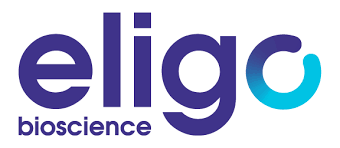
What: Eligo Bioscience, a biotech developing biotherapeutics for microbiome gene editing.
Why: To produce precision medicines to address unmet medical needs in immuno inflammation, oncology, and infectious diseases driven by the expression of harmful bacterial genes.
Funding: €30 million
Who: Luciano Marraffini, Timothy Lu, Dr. David Bikard & Xavier Duportet
Investors: Sanofi Ventures, Khosla Ventures, Bpifrance & Seventure Partners
What's next: The biotech will use the funding to speed up the development of its flagship program, EB005, which targets moderate to severe acne vulgaris, an inflammatory disease that affects about 3% of the global population. The investment will fuel pre-IND and IND activities to achieve early human data readouts in a Ph1b/2a clinical trial. Additionally, it will facilitate Eligo’s expansion into other chronic diseases, including oncology.
👋🏻 If you’re enjoying The French Tech Journal, support the project by forwarding it to friends and sharing it on your social networks. You can also comment on this post. And if you have ideas for stories, tips, or just want to harass us, shoot us an email: chris@frenchtechjournal.com / helen@frenchtechjournal.com 👋🏻





